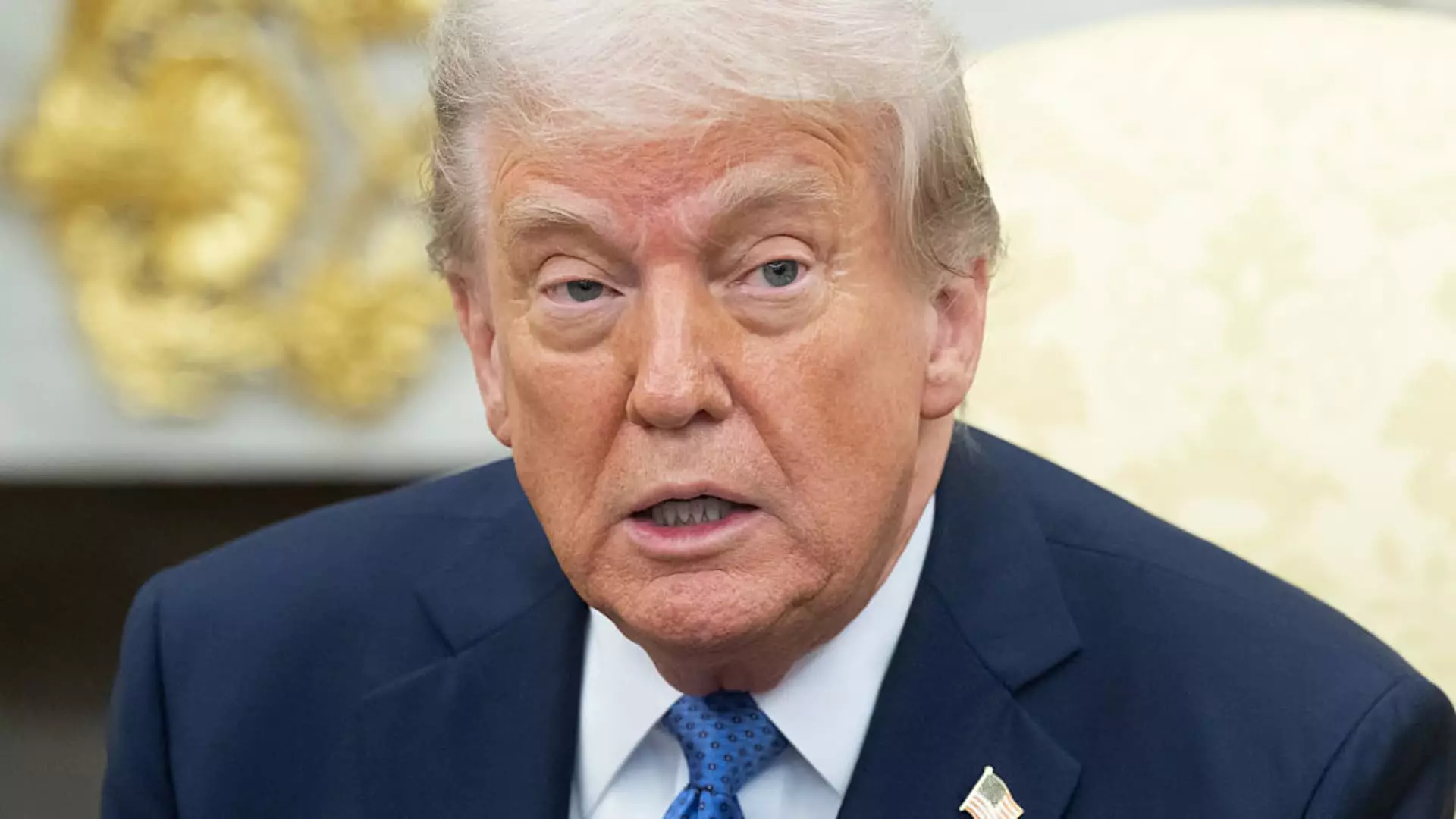The recent announcement from the Trump administration regarding the reinstatement of international students’ legal statuses has sparked a mixture of confusion and cautious optimism. As legal complexities and administrative blunders collide, a precarious environment for students remains. While the restoration of records is a tangible positive step, the overarching chaos exemplifies a broader issue within the U.S. immigration system—a system that seems more about improvisation than a coherent policy framework.
The Hidden Cost of Uncertainty
International students, who contribute significantly to the academic and cultural fabric of American society, have found themselves in an untenable position. As news broke of record reinstatements, they faced a psychological landscape riddled with uncertainty. No one can deny the moments of relief represented by the restoration, but many are left grappling with grim reflections on the implications of past terminations. Reinstating records does not erase the damage inflicted—the haunting shadow of record terminations still looms large, raising concerns about future applications for green cards or other immigration benefits. If anything, these reinstatements merely serve to highlight systemic flaws, evoking a galling sense of roulette where students must navigate an unpredictable legal terrain.
Political Motivations: A Distrustful Game
The motivations behind the Trump administration’s abrupt shifts in immigration policy warrant scrutiny. It is an undeniable fact that recent terminations affected many students engaged in political activism or who have had minor run-ins with law enforcement. Coupled with the administration’s notorious reputation for playing political playbooks to galvanize the base, this chaotic reinstatement signals that the lives of students are being treated as pawns. Political sentiments, particularly in an era marked by stridently polarized views, have infiltrated the immigration system, turning an already fragile locus of human experience into fodder for political vendetta.
A key figure in this unfolding drama, Elizabeth D. Kurlan of the Justice Department, has openly stated that Immigration and Customs Enforcement (ICE) retains authority over these statuses, alluding to veiled threats of future terminations based on vague infractions. The idea that student visas can be revoked at the whims of political circumstances is not just troubling; it’s a stark violation of the principles of justice that underpin legal systems.
A Flicker of Hope: The Need for Clarity
While the recent changes have induced a certain level of relief, it’s essential to acknowledge the voices of immigration attorneys and advocates who stress the urgent need for clarification and reform. Attorneys have portrayed the reinstatements as a “flipping of a light switch,” a fantastical image that by itself belies the twisted reality of the situation. The light may flicker momentarily, but it is a mere stopgap in a larger scheme. Students like those represented at UC Berkeley and the Rochester Institute of Technology find that their statuses are like a mirage—visible, yet precariously at risk of vanishing at any moment. As long as uncertainty remains a part of the equation, these individuals could face losing footing again, caught between ambiguous policy frameworks and endless administrative peculiarities.
Immigration experts, like David Wilson from Minnesota, highlight a broader concern: many students remain in limbo, their visas revoked and futures uncertain. The precariousness of their status invites a sense of isolation, akin to being caged in a maze with no clear exit. The reinstatement, while meritorious on surface-level, does little to alleviate the psychological toll that this oscillation in legal status has inflicted on individuals who have devoted years of study to foster a better understanding of the world.
The Imperative for Systemic Change
The current situation begs not merely for renewed legal statuses but for a comprehensive reevaluation of the entire immigration system—one that reflects our values and respects human dignity. The emergency fixes of the present day will not suffice; an overhaul is needed to eliminate the leaks in a boat that seems ever-ready to sink under the pressure of such reckless governance. As advocates call for systemic reforms, it becomes increasingly critical that we view the restoration of records not as an end in itself, but as a stepping stone toward meaningful change.
No longer should our international scholars be pawns in a game of political chess, but rather be celebrated contributors to the enriching fabric of U.S. society. Only through clarity, compassion, and coherence can we truly anchor the futures of aspiring students in a land that promises hope but often delivers uncertainty.

Leave a Reply